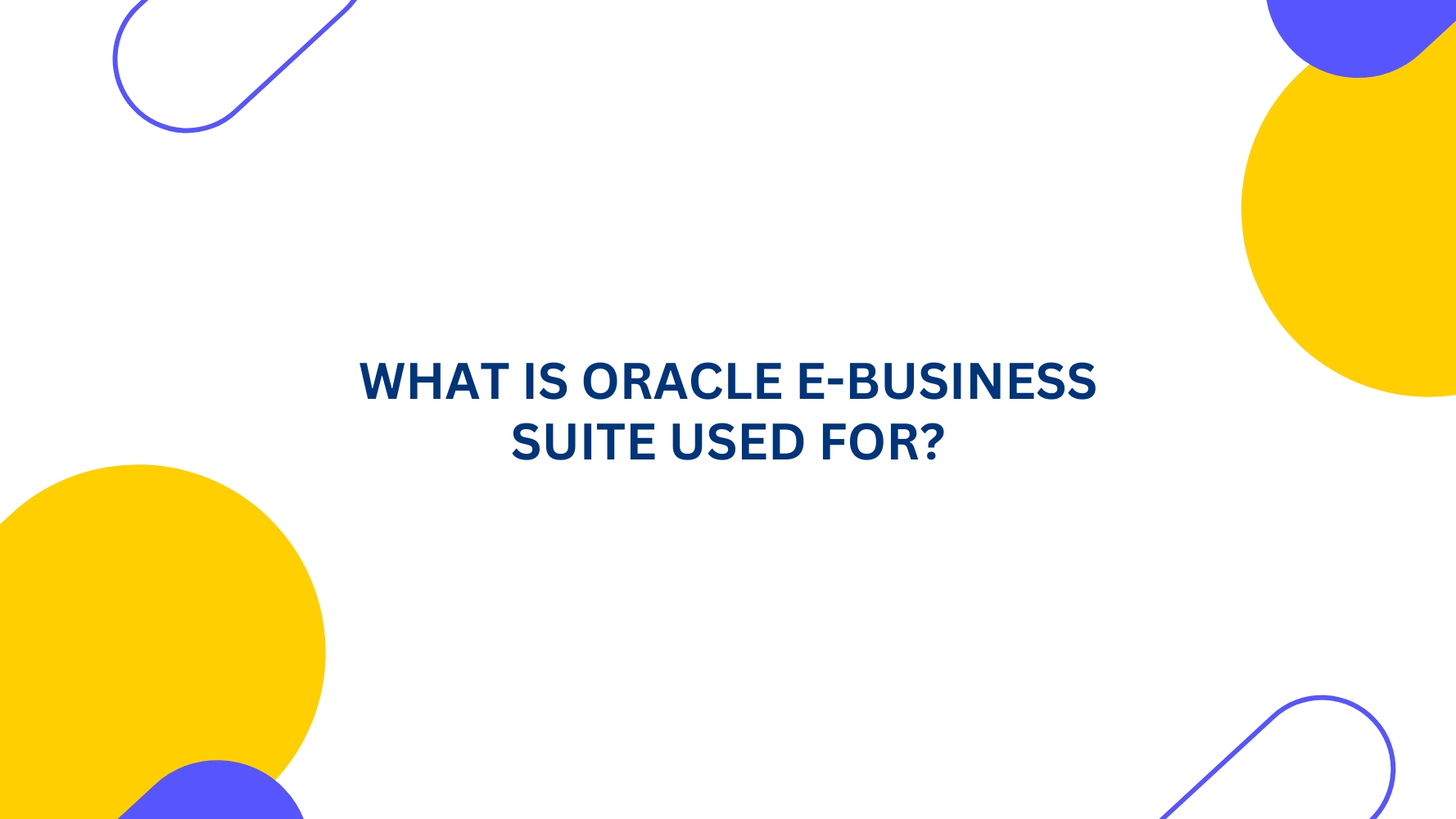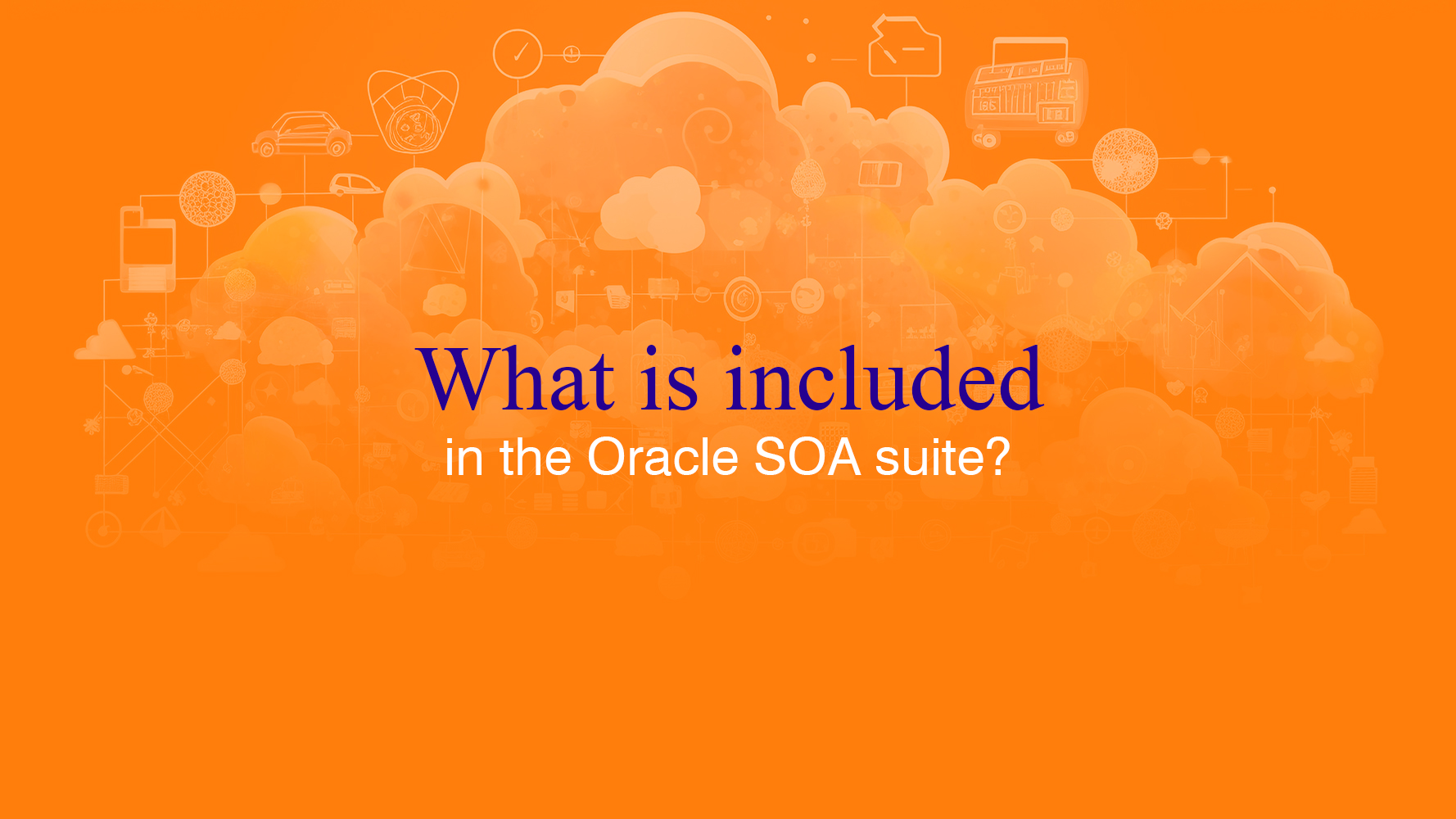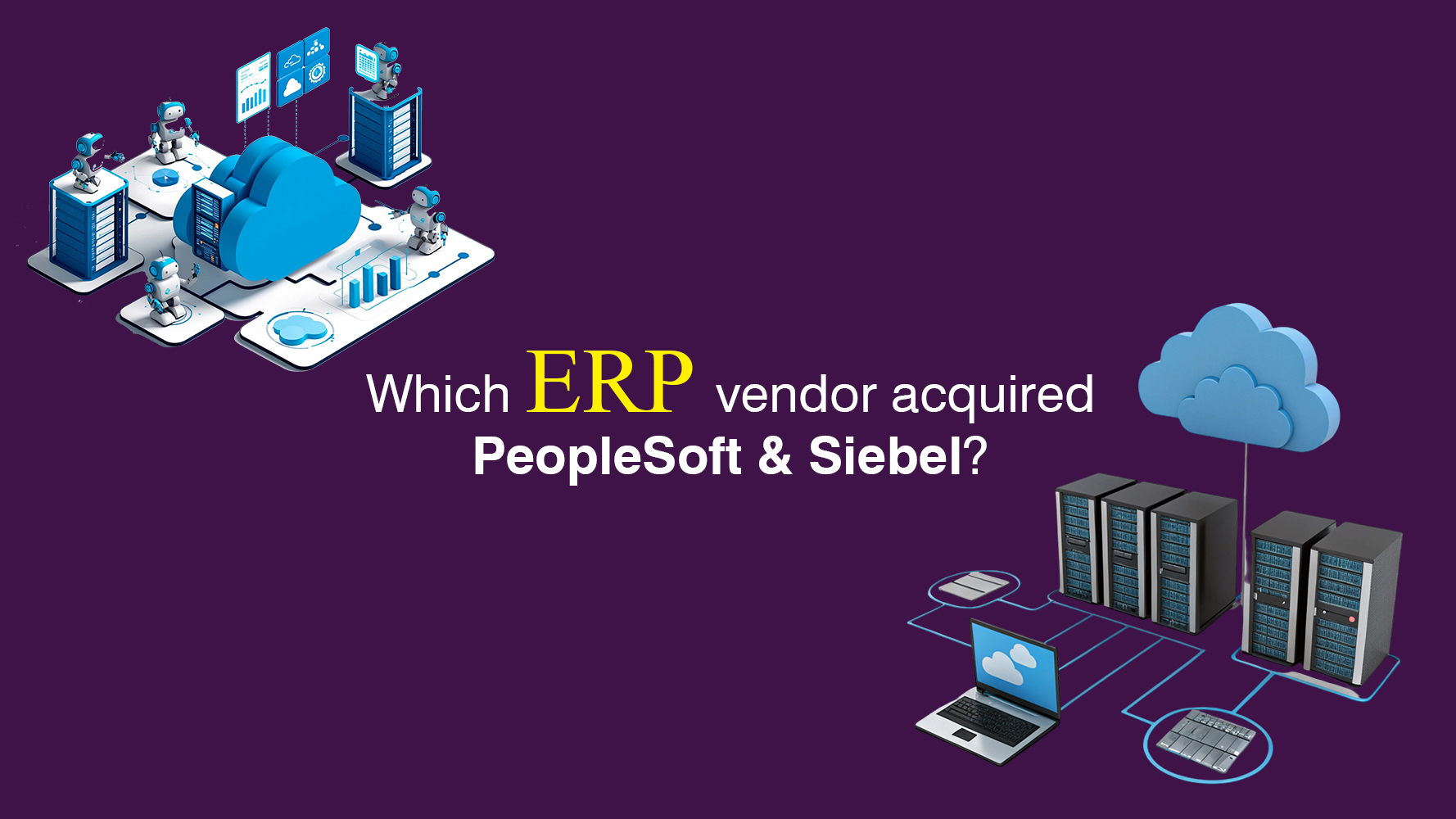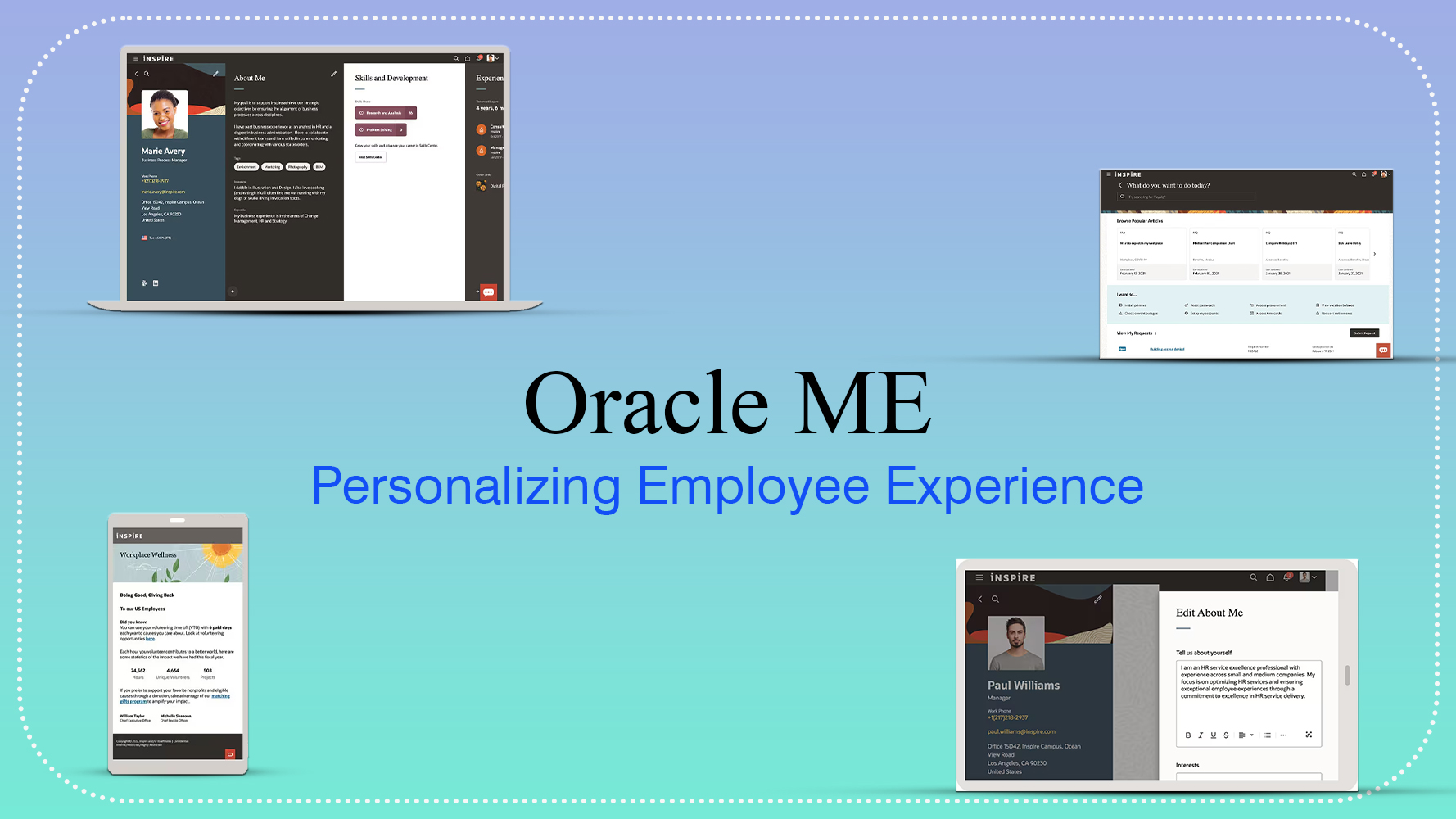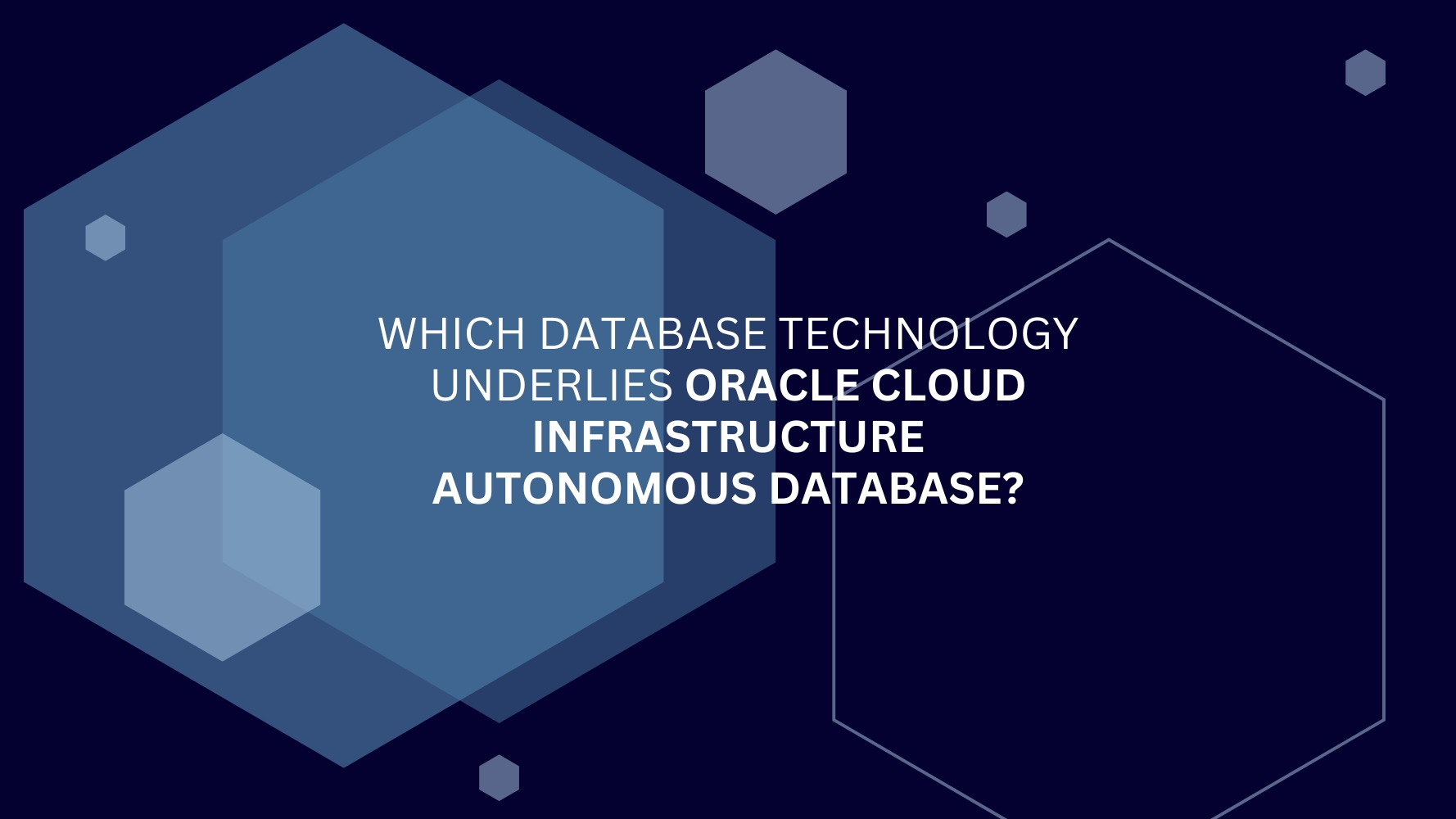Oracle E-Business Suite (Oracle EBS) is a comprehensive suite of integrated business applications designed to automate, streamline, and optimize various business processes. Widely used by enterprises across the globe, Oracle EBS serves as a cornerstone for managing core functions such as financials, human resources, supply chain, and customer relationship management. With its robust architecture and extensive functionality, Oracle EBS empowers organizations to achieve operational excellence, enhance productivity, and drive informed decision-making. In this blog, we’ll explore the key use cases of Oracle E-Business Suite and how it integrates with modern Oracle solutions like Oracle Integration Cloud (OIC), Oracle Cloud Infrastructure (OCI), and Oracle Fusion Cloud Applications.
Key Modules and Use Cases of Oracle E-Business Suite
1. Financial Management
One of the primary uses of Oracle EBS is managing an organization’s financial processes. The suite includes modules such as General Ledger, Accounts Payable, Accounts Receivable, Fixed Assets, and Cash Management. These modules help organizations:
- Maintain accurate financial records.
- Streamline financial reporting and compliance.
- Optimize cash flow and working capital management.
For instance, the General Ledger module provides a centralized platform for managing accounting activities, while Accounts Payable and Accounts Receivable modules automate invoice processing and payment collections. By integrating these modules with Oracle Analytics Cloud, businesses can gain actionable insights into financial performance and trends.
2. Human Resource Management (HRMS)
Oracle EBS’s HRMS module is designed to manage the entire employee lifecycle, from recruitment to retirement. Key functionalities include:
- Employee data management.
- Payroll processing.
- Performance evaluation.
- Learning and development tracking.
Organizations can enhance their HR operations by integrating Oracle EBS with Oracle Fusion Cloud Human Capital Management (HCM). This integration enables seamless data flow between on-premises EBS and cloud-based HCM applications, ensuring consistency and scalability.
3. Supply Chain Management (SCM)
Supply chain optimization is another critical area where Oracle EBS excels. Its SCM modules cover procurement, inventory management, order management, and manufacturing. Businesses can use these modules to:
- Streamline procurement processes.
- Optimize inventory levels.
- Enhance production planning and execution.
By connecting Oracle EBS with Oracle Cloud Applications and Oracle Integration Cloud (OIC), companies can automate supply chain workflows, improve visibility, and reduce operational inefficiencies.
4. Customer Relationship Management (CRM)
The CRM module in Oracle EBS is designed to improve customer engagement and retention. It offers functionalities such as sales force automation, marketing campaign management, and customer service.
When integrated with Oracle Analytics Cloud, businesses can analyze customer data to identify trends, improve sales forecasting, and personalize marketing efforts. Additionally, leveraging Oracle Cloud Infrastructure (OCI) ensures secure and scalable data management for CRM operations.
5. Project Management
Oracle EBS includes robust project management tools that help organizations manage project lifecycles, budgets, and resources effectively. The Project Accounting module, for example, provides insights into project costs, revenue, and profitability.
Integration with Oracle Fusion Cloud ERP enables real-time collaboration across project teams and stakeholders. This ensures better decision-making and timely project delivery.
Integration with Modern Oracle Cloud Solutions
Oracle EBS, traditionally an on-premises solution, can be enhanced and modernized by integrating it with Oracle’s cloud-based offerings. Let’s explore how these integrations work:
1. Oracle Integration Cloud (OIC)
OIC serves as a bridge between Oracle EBS and other Oracle Cloud Applications. It enables seamless data exchange and process automation across different systems. Key benefits include:
- Streamlined business processes.
- Reduced manual intervention and errors.
- Faster implementation of integrations.
For example, integrating Oracle EBS with Oracle Fusion Cloud ERP via OIC allows organizations to synchronize financial data, ensuring real-time accuracy and compliance.
2. Oracle Cloud Infrastructure (OCI)
OCI provides a scalable and secure platform for running Oracle EBS workloads. By migrating Oracle EBS to OCI, businesses can:
- Reduce IT infrastructure costs.
- Improve system performance and reliability.
- Ensure data security and compliance.
Moreover, OCI’s high-performance computing capabilities enable organizations to process large volumes of data quickly, making it an ideal choice for mission-critical Oracle EBS applications.
3. Oracle Analytics Cloud (OAC)
OAC empowers businesses to derive actionable insights from their Oracle EBS data. By leveraging advanced analytics and AI-driven tools, organizations can:
- Monitor key performance indicators (KPIs).
- Identify trends and anomalies.
- Make data-driven decisions.
For example, integrating Oracle EBS’s financial data with OAC enables CFOs to forecast revenue and expenses more accurately, supporting strategic planning and growth initiatives.
Transitioning to Oracle Fusion Cloud Applications
While Oracle EBS continues to be a reliable and robust solution for many organizations, Oracle is encouraging customers to transition to its next-generation Oracle Fusion Cloud Applications. These applications are built on a modern, cloud-native architecture and offer several advantages, such as:
- Enhanced user experience with intuitive interfaces.
- Regular updates and new features delivered automatically.
- Seamless scalability and flexibility to adapt to changing business needs.
For organizations currently using Oracle EBS, a phased migration to Oracle Fusion Cloud Applications can be facilitated using Oracle Integration Cloud. This approach ensures minimal disruption to business operations while leveraging the advanced capabilities of the cloud.
Benefits of Using Oracle E-Business Suite
1. Comprehensive Functionality: Oracle EBS covers a wide range of business processes, from financials to supply chain to customer relationship management.
2. Scalability: Designed to support businesses of all sizes, Oracle EBS can scale as your organization grows.
3. Integration Capabilities: With tools like OIC, Oracle EBS can integrate seamlessly with other Oracle Cloud solutions, enhancing its overall functionality.
4. Proven Track Record: Trusted by thousands of organizations worldwide, Oracle EBS has a long history of delivering reliable and efficient business solutions.
5. Enhanced Decision-Making: When combined with tools like Oracle Analytics Cloud, Oracle EBS enables organizations to make informed decisions based on real-time data insights.
Conclusion
Oracle E-Business Suite remains a powerful and versatile solution for managing core business processes. Its comprehensive functionality, coupled with the ability to integrate with modern Oracle Cloud solutions like Oracle Integration Cloud, Oracle Cloud Infrastructure, and Oracle Analytics Cloud, ensures that it continues to deliver value in today’s fast-evolving business landscape. Additionally, for organizations looking to embrace the future, transitioning to Oracle Fusion Cloud Applications offers a pathway to leverage cutting-edge technology and drive innovation.
Whether you’re looking to optimize your financials, streamline your supply chain, or enhance customer relationships, Oracle EBS provides a solid foundation to achieve your goals. With the right integrations and a strategic approach, businesses can unlock the full potential of Oracle’s ecosystem and set themselves up for long-term success.
Ready to take your business to the next level with Oracle solutions? Connect with our Oracle experts at Tangenz today!
